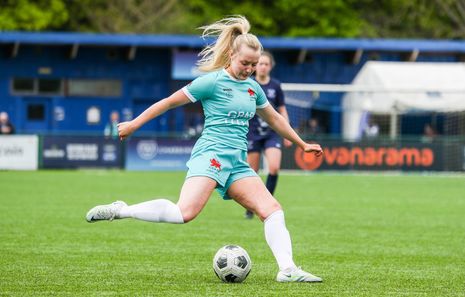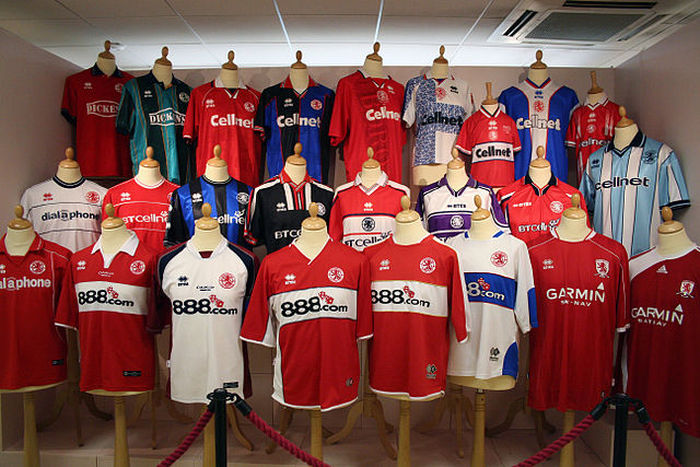Cambridge football teams wear plastic bottle kits for the first time
As Cambridge colleges and Blues teams adopt eco-kits for the new season, Will McLaughlin talks to the Selwyn alumnus who is supplying their recycled sportswear, and investigates the potential that college sport has for sustainability

Football kits have evolved dramatically over the last 50 years. We have seen the rise of the sponsor, the fall of the collar, and now the resurgence of the retro. This year however, some teams in Cambridge are joining a wave of change more radical and fundamental: their kits will be made of plastic bottles.
While trying to ignore Manchester United’s poor start to the season this summer, I received an exciting email. It was from Andy Wright, Selwyn alumnus and co-founder of a clothing business with a sustainable mission. He was asking whether the venerable Robinson College FC would like to adopt their eco-kits for next season. Naturally, like other teams in Cambridge, we were excited to get involved. It was also a great opportunity to ask Andy about the progress made in Cambridge sportswear, his hopes for the future, and the difficulties in making eco-kits.
First Andy explained the impact. Robinson’s set of stylish yellow and blue striped kits alone contains the equivalent of 425 half-litre post-consumer PET plastic bottles. Compared to traditional manufacturing, every ton of PET recycled saves 3.8 barrels of oil, uses 86% less water, and 75% less energy. They are also just as breathable and stretchy as conventional fabrics, which means the electrifying talent that gave Robinson its two famous victories last season doesn’t have to sacrifice performance.
The uptake in Cambridge began with the Varsity match last year, where both men’s and women’s teams sported Andy’s eco-kits. According to the Cambridge University site, this match alone recycled 2500 bottles. Following this success, both CUAFC women’s teams as well as the men’s first team have confirmed that their next blues kit will be recycled. As of the time of writing, Robinson and Trinity men’s are the only college teams confirmed, but Andy assures me he is in conversation with other colleges who are also eager. When asked whether the Cambridge response has been positive, Andy replied: “Yes, absolutely,” explaining that “most teams are keen to have the recycled logo on the shirt as a way to inspire others.”
I was glad to hear that college captains across the University were so willing to embrace the change, and Andy really emphasised the importance of individual action in advocating for eco-kits. “The greatest challenge is really to get people to demand that their sportswear is ‘eco’,” he said, before describing how “sports are dominated by the big brand companies, and they may have too much to lose to make fast switches.” That’s where Andy and Appareal come in. Unfortunately, nodding along to your favourite Varsity writer’s kit commentary doesn’t make much impact; we must vote with our wallets if we want to make environmental change.
And that change could be huge. Andy explained that: “The amount of sports clothing using virgin textile (instead of recycled plastic) is enormous, in fact so enormous there are no reliable data sources.” Tackling a problem of this scale therefore requires a multi-faceted solution. He highlighted problems independent from kit-material, like the yearly three-kit cycle in premier league clubs which promotes constant buying and throwing away of kits. But there are also problems that get less attention. “We need to address microfibre release,” he explained, which “is inherent in all garments when washed”, and must be addressed either by redesigning the washing machines we use, or changing the clothing fabric.
Currently the major interest in recycled sportswear has come in football, but the company’s mission is to expand to all sports. While at the moment the project is relatively small, it seems to me that Cambridge is a perfect environment for eco-kits to thrive, given the sheer number and variety of college teams at the University. But even more important is the freedom that we have in Cambridge to choose. While Manchester United is tied up by shareholders, kit sponsorships and the tight pockets of the Glazers, the only restriction Robinson College FC has is its annual budget.
When I asked Andy for any final words he’d like to broadcast to Varsity readers, he stated simply: “Every single garment makes a difference to our planet,” and “The change starts with us.” Whether buying a set of football kits, a car, or a banana, we should be conscious of what we are encouraging with our purchases. In this case, Cambridge’s Blues and Robinson’s yellows are combining to help sports kits go green.
 News / Proposed changes to Cambridge exam resits remain stricter than most7 May 2024
News / Proposed changes to Cambridge exam resits remain stricter than most7 May 2024 News / Cambridge students set up encampment calling for Israel divestment6 May 2024
News / Cambridge students set up encampment calling for Israel divestment6 May 2024 Features / Cambridge punters: historians, entertainers or artistes? 7 May 2024
Features / Cambridge punters: historians, entertainers or artistes? 7 May 2024 Sport / The ‘netball girl’: myth or reality?7 May 2024
Sport / The ‘netball girl’: myth or reality?7 May 2024 Theatre / A nuanced and neurodivergent Carrie comes to the ADC6 May 2024
Theatre / A nuanced and neurodivergent Carrie comes to the ADC6 May 2024






